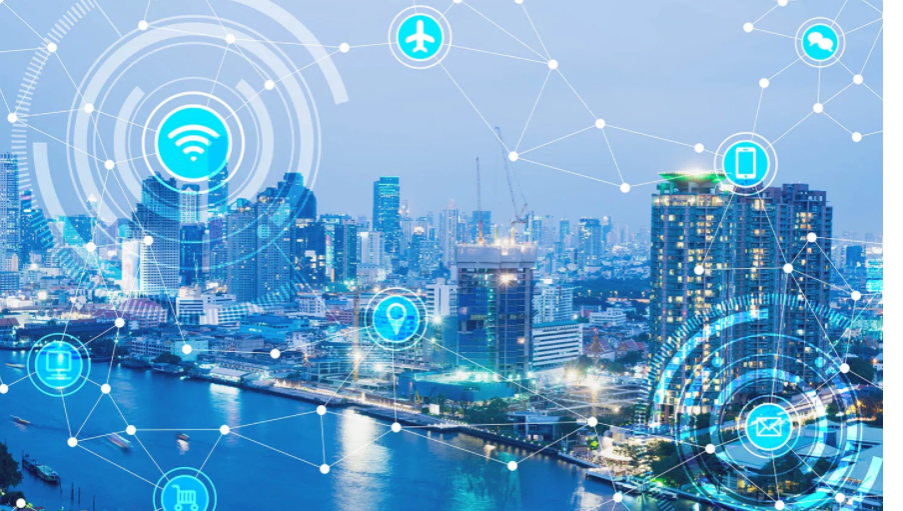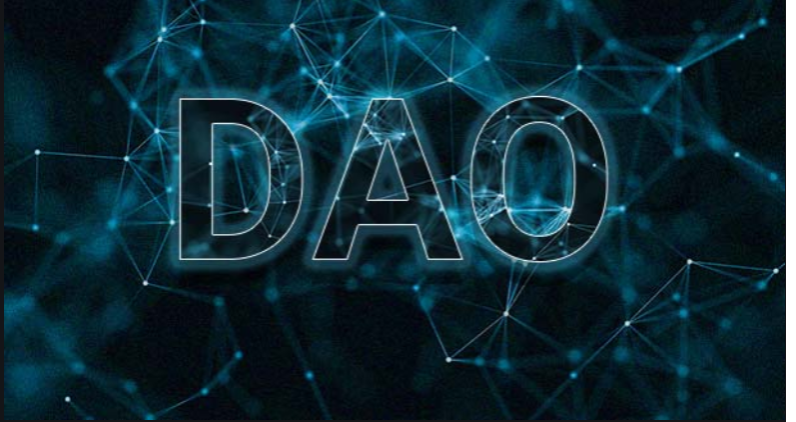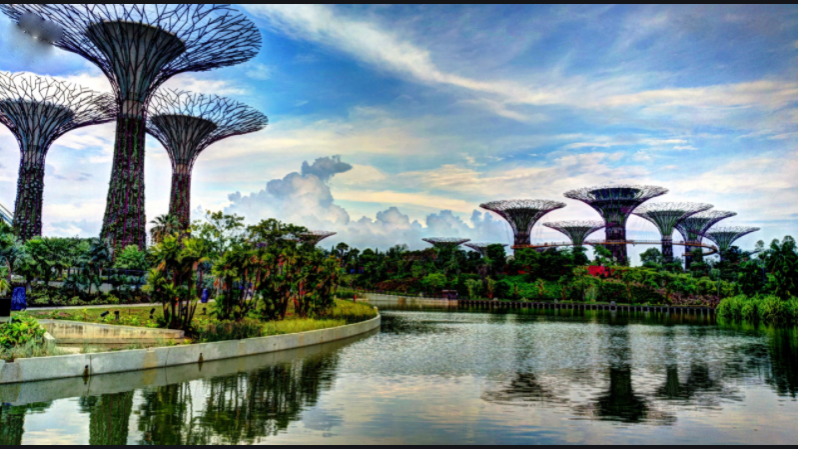The Forum features three program themes: Globalization and Geopolitics, Future of Democracy, and Sustainability. The transformative power of technology and the importance of security are central to exploring all three. Each program involves a series of integrated initiatives that collectively support the Forum’s mission, which is to shed light on the interaction of technologies with conventional and novel geopolitical problems and to offer concrete strategies and policy choices. The criteria for ranking proposed program areas, as well as the initiatives within each program, are based on our assessment of the program’s transforming effect, its complexity, and its synergy with the Forum and its mission. New initiatives within the program areas will be selected and funded in joint ventures with partners throughout the year. Prospective subjects for the coming year are based on our observation during COVID-19 of the most critical and least understood points of divergence and convergence in global geopolitics. Examples of the initiatives in which we are engaged are:
1- Globalization and Geopolitics
This program attempts to provide a deep understanding of the emerging world order and to examine the ability of current institutions to deal with it. The objective is to provide a foundation from which to reimagine the world architecture. Current studies include:Post-Pandemic
An Opportunity to Reset the Economy in a Sustainable Path
 This study argues that the bleak image of depression that is painted as a post-pandemic destiny is missing out on possibilities ahead. The pandemic has created an opportunity to reset and direct the economy and geopolitics in a sustainable, peaceful, and prosperous path – something akin to the global order that was designed in the 1945 Bretton Woods Conference. However, this time around the process needs to be aligned with the geopolitical realities of our time and its digital orientation.
This study argues that the bleak image of depression that is painted as a post-pandemic destiny is missing out on possibilities ahead. The pandemic has created an opportunity to reset and direct the economy and geopolitics in a sustainable, peaceful, and prosperous path – something akin to the global order that was designed in the 1945 Bretton Woods Conference. However, this time around the process needs to be aligned with the geopolitical realities of our time and its digital orientation.
The goal of the project is to lay the foundation for a model of international architecture capable of facilitating global coordination and safeguarding global peace. Naturally, questions about digital governance and universality of standards will be central. Currently, there are few established global rules and norms on digital issues, there is no single international institution to oversee them, nor a forum for negotiations. Clearly, a more cohesive framework of rules, standards, and norms in the digital space is needed. Drawing lessons from Bretton Wood, the study will focus on the components of digital governance, as well as the dynamic and collaborative knowledge sharing technology required to establish that architecture. The study will identify the critical points of divergence and convergence among the stakeholders, most likely audience and brokers for the global negotiations, and will offer a deep analysis of methods of past successful negotiations. The goal is a model for coordination and negotiations, along with a dynamic and collaborative platform of resources and expertise with space for evolving discussions.New Geopolitical Players – Smart Cities
 COVID-19 in the United States has driven home that power and authority are devolving away from the national government toward states and cities, as well as the private sector. California is now a geopolitical actor in its own right, convening car companies around emission standards, on the one hand, and engaging in international outreach on the other. Los Angeles has a deputy mayor for international affairs. “Smart city” is a rising techno-scientific paradigm mobilized by both the U.S. and Chinese governments. While surveillance is a more prominent feature of the Chinese system, both countries use similar technology — the Internet of Things, big data, and artificial intelligence — to achieve sustainable and efficient living environments. Operating these facilities also requires shared global product chains, international standards, as well as research and regulatory coordination across the national borders, and cities are not waiting for national governments to make decisions. They are already reaching out to other cities around the globe.
COVID-19 in the United States has driven home that power and authority are devolving away from the national government toward states and cities, as well as the private sector. California is now a geopolitical actor in its own right, convening car companies around emission standards, on the one hand, and engaging in international outreach on the other. Los Angeles has a deputy mayor for international affairs. “Smart city” is a rising techno-scientific paradigm mobilized by both the U.S. and Chinese governments. While surveillance is a more prominent feature of the Chinese system, both countries use similar technology — the Internet of Things, big data, and artificial intelligence — to achieve sustainable and efficient living environments. Operating these facilities also requires shared global product chains, international standards, as well as research and regulatory coordination across the national borders, and cities are not waiting for national governments to make decisions. They are already reaching out to other cities around the globe.
Decentralizing the Nation-State – Blockchain
 The tenets that underpin existing political systems and governance models are facing a powerful, and disruptive yet transformative technology. Blockchain is a major breakthrough that enables “the disintermediation and decentralization of all transactions of any type between all parties on a global basis. Its advocates are labeling nation-state and centralized institutions as the Single Point of Failure (SPOF) and questioning their traditional role, claiming that civil society could organize itself and protect its own interests more effectively by replacing the traditional functions of the state with blockchain-based services and decentralized open-source platforms. They encourage citizens to be part of the blockchain revolution and self-create their own systems of governance, in which centralization, coercion, and hierarchies are replaced by mechanisms of distributed consensus. They are driven by an increasing distrust of, and profound dissatisfaction with, the current political system as a corrupt, opaque, encumbrance, and unimaginative; a sentiment with strong and increasing appeal amongst populations around the world.
The tenets that underpin existing political systems and governance models are facing a powerful, and disruptive yet transformative technology. Blockchain is a major breakthrough that enables “the disintermediation and decentralization of all transactions of any type between all parties on a global basis. Its advocates are labeling nation-state and centralized institutions as the Single Point of Failure (SPOF) and questioning their traditional role, claiming that civil society could organize itself and protect its own interests more effectively by replacing the traditional functions of the state with blockchain-based services and decentralized open-source platforms. They encourage citizens to be part of the blockchain revolution and self-create their own systems of governance, in which centralization, coercion, and hierarchies are replaced by mechanisms of distributed consensus. They are driven by an increasing distrust of, and profound dissatisfaction with, the current political system as a corrupt, opaque, encumbrance, and unimaginative; a sentiment with strong and increasing appeal amongst populations around the world.
The principles behind decentralization often echo the values of neo-liberal politics but are also appealing to the far-left, and to the technocentric and to anarchists. COVID-19 has energized the movement by presenting clear evidence of governments’ mismanagement and the need for citizens to take charge of their own lives. Meanwhile, China has been strategically investing in blockchain technology and is offering a government-sponsored blockchain platform. It has just started to use a closed version of the technology in China’s COVID-19 recovery plans. A comprehensive analysis of blockchain applications from a political perspective is severely lacking to date. This study aims to fill this gap by identifying the key points and challenges to the traditional mechanisms of State authority, citizenship, and democracy; and by assessing the risks related to a dominant position of private powers in distributed ecosystems.Data has paralleled oil in becoming an intensely political national security issue
 If oil was the black gold of the 20th century, data has taken over that mantle in the 21st. And just like oil in the last century, data is becoming intensely political. Indian Prime Minister Narendra Modi said that “whoever acquires and controls” data will attain “hegemony.” How did Information come to run our world? The analogy with the geopolitics of oil is suggestive.
If oil was the black gold of the 20th century, data has taken over that mantle in the 21st. And just like oil in the last century, data is becoming intensely political. Indian Prime Minister Narendra Modi said that “whoever acquires and controls” data will attain “hegemony.” How did Information come to run our world? The analogy with the geopolitics of oil is suggestive.
Read More …Viewing Tech Giants as a Geopolitical Force
 The rapid ascendance of a handful of tech startups to a giant, powerful independent geopolitical force not only has taken governments unprepared but also caught the companies off guard. Traditionally, there has been some degree of separation between the political and commercial realms, each with its own source of legitimacy. Over the years, a confluence of circumstances diminished the governments’ role, leaving behind an unregulated market. Innovative tech giants emerged with little foresight about their role in society. Unelected, they ended up eroding the line between political and commercial. Today, their political naivete and emphasis on profit over principle could encode authoritarianism into our future, and meanwhile, the governments’ punitive approach is late and futile.
The rapid ascendance of a handful of tech startups to a giant, powerful independent geopolitical force not only has taken governments unprepared but also caught the companies off guard. Traditionally, there has been some degree of separation between the political and commercial realms, each with its own source of legitimacy. Over the years, a confluence of circumstances diminished the governments’ role, leaving behind an unregulated market. Innovative tech giants emerged with little foresight about their role in society. Unelected, they ended up eroding the line between political and commercial. Today, their political naivete and emphasis on profit over principle could encode authoritarianism into our future, and meanwhile, the governments’ punitive approach is late and futile.
Read More …
2- The Future of Democracy
TThis program brings together thought leaders and leading thinkers to re-imagine democracy for the new era. Current initiatives include:The New Style of Ideological Warfare – Misinformation and Social Media
 The unfolding world governments’ battle against coronavirus fought on the medical front is well discussed by the media and understood by the global public. However, the simultaneous global battles of mis/information and competing ideologies are overlooked. The three superpowers (U.S., China, Russia) are engaged in an aggressive war of words, fake news, and narrative construction using social media platforms to shape the public perception of COVID-19 origins and spread. Such a rising geopolitical tension was never envisioned when innovative individuals in the private sector created the infrastructure for the new media and when humanity as a whole embraced it. Historically, trusted and quality media served as democracy watchdogs and arbiters of the debate; in their absence, truth is for grabs. In China it is controlled, in Russia, it is constructed, and in the United States it is dismissed from the top and replaced by “alternative truth”. The battle is over shaping the post COVID world, its ideological system, and leadership. At stake is the fate of democracy as we know it. It is critical to launch a deep and detailed study of the geopolitical role of the media in the 21st century.
The unfolding world governments’ battle against coronavirus fought on the medical front is well discussed by the media and understood by the global public. However, the simultaneous global battles of mis/information and competing ideologies are overlooked. The three superpowers (U.S., China, Russia) are engaged in an aggressive war of words, fake news, and narrative construction using social media platforms to shape the public perception of COVID-19 origins and spread. Such a rising geopolitical tension was never envisioned when innovative individuals in the private sector created the infrastructure for the new media and when humanity as a whole embraced it. Historically, trusted and quality media served as democracy watchdogs and arbiters of the debate; in their absence, truth is for grabs. In China it is controlled, in Russia, it is constructed, and in the United States it is dismissed from the top and replaced by “alternative truth”. The battle is over shaping the post COVID world, its ideological system, and leadership. At stake is the fate of democracy as we know it. It is critical to launch a deep and detailed study of the geopolitical role of the media in the 21st century.Enhanced Surveillance During and Post-COVID19 – National Security and Foreign Policy Implications
 Decisions about whether to reopen a nation’s economy during the coronavirus (COVID-19) pandemic depend on being able to track those who are or might be infected. That is leading to initiatives, both government and private sector, for surveillance of citizens. In the United States – as the technology giants are emerging as heroes in embedding IT technology into every aspect of our lives, from education, work, and health to entertainment and transportation– Apple and Google are developing Bluetooth-enabled contact tracing APPs to tell cellphone users whether they have been in contact with someone who has symptoms of or a confirmed case of COVID-19. Amazon’s “thermal camera” at plant entrances is another example, and surely the model for airports and metro stations, sports events, conventions, theaters, and restaurants in the near future. The privacy concern is that, as in the aftermath of 9/11, people will eagerly trade privacy for security, in this case, health.
Decisions about whether to reopen a nation’s economy during the coronavirus (COVID-19) pandemic depend on being able to track those who are or might be infected. That is leading to initiatives, both government and private sector, for surveillance of citizens. In the United States – as the technology giants are emerging as heroes in embedding IT technology into every aspect of our lives, from education, work, and health to entertainment and transportation– Apple and Google are developing Bluetooth-enabled contact tracing APPs to tell cellphone users whether they have been in contact with someone who has symptoms of or a confirmed case of COVID-19. Amazon’s “thermal camera” at plant entrances is another example, and surely the model for airports and metro stations, sports events, conventions, theaters, and restaurants in the near future. The privacy concern is that, as in the aftermath of 9/11, people will eagerly trade privacy for security, in this case, health.
Beyond privacy, the rise of surveillance raises geopolitical issues. For Beijing, exporting its information technology is not only about securing important new sources of revenue and data, but also generating greater strategic leverage vis-à-vis the West. The health threat justifies authoritarian measures, and China is aggressively pursuing digital advantage around the globe, especially in its leveraging of artificial intelligence (AI). For example, the recent note Toward Digital Power over States identified Chinese AI surveillance systems in at least 64 nations. Now, China is well ahead of Google and Apple in using dedicated smartphone apps that limit or enable participation in public space depending on one’s health status. Even democracies like Singapore, Germany, the United Kingdom, South Korea, and Israel are exploring similar programs that could lead to substantial surveillance of their citizens.
3- Sustainability
This program has three primary areas that the Fellows will be focusing on: The New Economy, Smart Cities, and Sustainability Technologies. Initiatives in this program include:Seizing the COVID Opportunity
 Globally, COVID-19 has driven home what isn’t working: national (and sub-national) competition reigns, including for life-and-death medical supplies, when global cooperation is imperative, especially involving the private sector and emerging technology. COVID-19 revealed our global medical supply chain as inefficient, fragmented, and obscure, and its manufacturing outdated. In the United States, the pandemic laid bare not just the shortcomings of a medical system that costs more than any other rich country but produces worse health outcomes, but also of “vulture” capitalism — driven by short-term returns to shareholders — but at the price of increasing inequality that was all too visible in who died from COVID-19.
Globally, COVID-19 has driven home what isn’t working: national (and sub-national) competition reigns, including for life-and-death medical supplies, when global cooperation is imperative, especially involving the private sector and emerging technology. COVID-19 revealed our global medical supply chain as inefficient, fragmented, and obscure, and its manufacturing outdated. In the United States, the pandemic laid bare not just the shortcomings of a medical system that costs more than any other rich country but produces worse health outcomes, but also of “vulture” capitalism — driven by short-term returns to shareholders — but at the price of increasing inequality that was all too visible in who died from COVID-19.
In principle, recovering from the pandemic should not just rebuild failed institutions. Globally, we’ve long known that the Bretton Woods institutions have not been reshaped to accommodate China and other emerging economies, or increasingly powerful private sectors and individuals. Nor does restarting the U.S. economy need to mean rebuilding inequality. Yet the familiar obstacles — nationalism abroad and polarization at home — haven’t gone away. The question is: can COVID open new opportunities? This convening would look widely at ideas, initiatives, and points of leverage, especially from governments below the nation-state and from the private sectors.Happytat
 The great paradox of our hyper-connected digital age is that we are drifting apart and smart cities could exacerbate this condition. The human connection lies at the heart of human wellbeing, success, and happiness. The current policies focus on improving individuals’ social skills for adapting to and/or building communities. Yet, studies from ancient Greek to recent times points to mis/match between individuals and their habitat as the key factor for a sense of isolation/belonging. This initiative’s goal is to offer guidelines for human-centric smart city design.
The great paradox of our hyper-connected digital age is that we are drifting apart and smart cities could exacerbate this condition. The human connection lies at the heart of human wellbeing, success, and happiness. The current policies focus on improving individuals’ social skills for adapting to and/or building communities. Yet, studies from ancient Greek to recent times points to mis/match between individuals and their habitat as the key factor for a sense of isolation/belonging. This initiative’s goal is to offer guidelines for human-centric smart city design.
The Human Robotics
 This initiative is designed as a philosophical study to examine the fundamentals of Artificial Intelligence-based on Heidegger’s philosophy. The aim is to explore the potential for developing technology in a more organic sense.
This initiative is designed as a philosophical study to examine the fundamentals of Artificial Intelligence-based on Heidegger’s philosophy. The aim is to explore the potential for developing technology in a more organic sense.